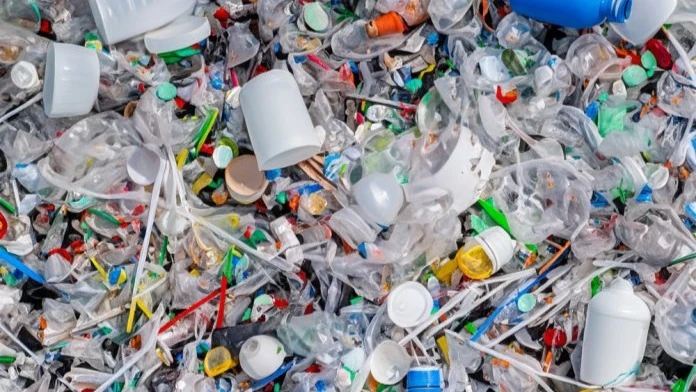Lobbyist calls for strong global treaty to curb plastic production

A DAR ES SALAAM-based lobbyist has called for a strong global treaty that will reduce production of plastic, eliminate the most toxic forms of the products and toxic chemical additives.
This is ahead of the final negotiations on the Global Plastic Treaty to be held in November, this year in Busan, South Korea, bringing stakeholders from across the world where representatives from the National Environment Management Council (NEMC) are expected to take part in the important negotiations.
Addressing reporters in Dar es Salaam at the weekend, Ana Le Rocha, director of Nipe Fagio Tanzania highlighted the urgent need for global cooperation to combat the crisis.
Le Rocha advised government delegates to focus on critical areas such as health, environmental protection, and human rights during the treaty discussions.
She emphasised the need for a robust agreement that not only eliminates plastic pollution but also aligns with the directives of the United Nations Environment Assembly (UNEA) resolution 5/14.
“Plastic represents a rapidly escalating crisis, significantly impacting the environment, human health, human rights, and the rights of local communities, as well as biodiversity and climate,” Le Rocha said.
She said: “For the Global plastic Treaty to be effective in addressing plastic pollution, strong systems for management and resolution are essential. This treaty presents a unique opportunity to make substantial progress; it could become one of the most significant environmental agreements in history.”
The proposed treaty should include binding targets to prevent and eliminate the sources of plastic production while reducing levels of plastic pollution.
“It must also hold polluting entities and producing countries accountable for their impacts on human rights, health, the environment, and the economy related to plastic production, usage and disposal,” she said.
Additionally, it should incorporate scientific solutions, including Indigenous and community-based practices rooted in sustainable approaches.
“Importantly, polluters should be excluded from the treaty negotiation process,” Le Rocha said.
She outlined several key elements that should be prioritised, including reducing plastic production at the source, establishing legal standards for the production and distribution of new plastics, and prohibiting hazardous chemicals that pose risks to human health and the environment.
She further stressed the need for specific regulations that uphold precautionary principles and implement a “no data, no market” rule to eliminate harmful chemical groups.
“We need robust international regulations governing the entire plastic lifecycle, alongside voluntary commitments to control plastics from the sector and enforceable national regulations that reflect current realities, including temporary bans on specific products,” she said.
Le Rocha further said legal commitments to eliminate plastic pollution must be accompanied by transparent international funding pledges.
“We must also avoid relying on voluntary funding for optional actions, as this has proven ineffective in previous agreements.”
She underscored the importance of ensuring a just transition for waste collectors, who are at the forefront of the crisis, along with other communities directly affected by plastic pollution.
The transition should include financial support, formal recognition of their rights, transparency about the health impacts of plastic pollution, and active participation in policy-making processes.
Top Headlines
© 2024 IPPMEDIA.COM. ALL RIGHTS RESERVED






















